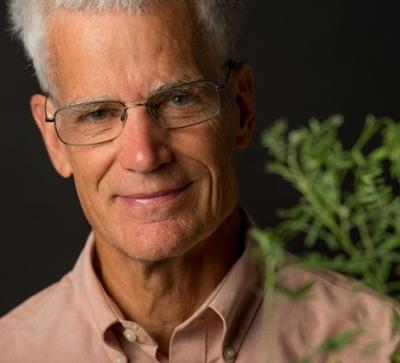A team led by MU professors has received a $1.25 million Science Education Partnership Award. The grant will fund a five-year initiative that seeks to improve STEM literacy and comprehension in Missouri middle schools.
The Science Education Partnership Award is given by the National Institutes of Health, an organization under the U.S. Department of Health and Human Services that aims to help scientific research that will improve or save lives. According to the NIH website, it is the largest public funder of biomedical research in the world.
William Folk, a biochemistry professor at the College of Agriculture, Food & Natural Resources and the School of Medicine, will lead the program with Delinda Van Garderen, professor and director of Graduate Studies in the department of special education.
“It’s an exciting project and relatively unique,” Folk said. “I don’t know of another project that is anything like this, and the reviews by experts in the field were very positive.”
Folk’s entire career has been spent in science education, mostly at the undergraduate, graduate and professional level. However, he has recently been concerned with STEM literacy in K-12 schools.
“A few years ago, I took the decisive action of forming a group of faculty and students here to try to strengthen science education in K-12 schools because there is abundant evidence that we are not doing a very good job of educating children about science,” he said.
To better STEM literacy in middle schools, a significant portion of the $1.25 million will be used for reading materials and workshops for teachers. The first weeklong workshop will begin in summer of 2018 and participating teachers will be observed and assessed throughout the following school year. Folk estimated that the program will personally impact approximately 45 teachers and may reach many more that use the literacy materials available online.
“Our goals are to provide materials that are current and interesting that teachers can use in strengthening the literacy of students, [as well as] providing reading materials [and] exercises in writing accompanied by science inquiry activities [and] hands-on activities,” Folk said.
Another faculty member involved with the program, associate professor Amy Lannin of the College of Education, mentioned that the program’s emphasis on providing different types of readings and engagement with texts is what makes this project unique. Its method of focusing on collecting materials that will encompass a “variety of reading levels and interests” is another key feature.
“This text set approach is going to allow students to engage in not just one textbook approach, but being able to look at the way information can come about through lots of different types of text, and I think that is what’s really interesting is this intentional use of text sets,” Lannin said.
Lannin is on the leadership team for the STEM Literacy Project, another grant funded program for improving STEM literacy in schools. She is also director of the Campus Writing Program and the Missouri Writing Projects Network.
“One of the other unique things about the project itself is that it is blending what we do in science with the English language arts and we are also involving special education teachers,” Lannin said. “I find that when I am at the table with people from different disciplines like that, it definitely sparks a lot more understanding about learning and how to support students as well as teachers.”
Folk emphasized this collaboration aspect of the program as well and encourages students who would like to get involved with the program to contact him. Although having expertise in STEM may prove useful, he shared that having students who could utilize different media and make science material accessible for middle schoolers would ultimately be a big help to the team.
“It’s not just reading and writing, but it can be material that accompanies that written word,” Folk said. “I can provide the science, but we welcome students’ help to develop interesting and engaging multidimensional materials. I’m anxious to work with students to do that.”
Students and teachers who want to take part in this project can reach out to any member of the team, particularly Folk and Van Garderen, via email.
_Edited by Olivia Garrett | [email protected]_














